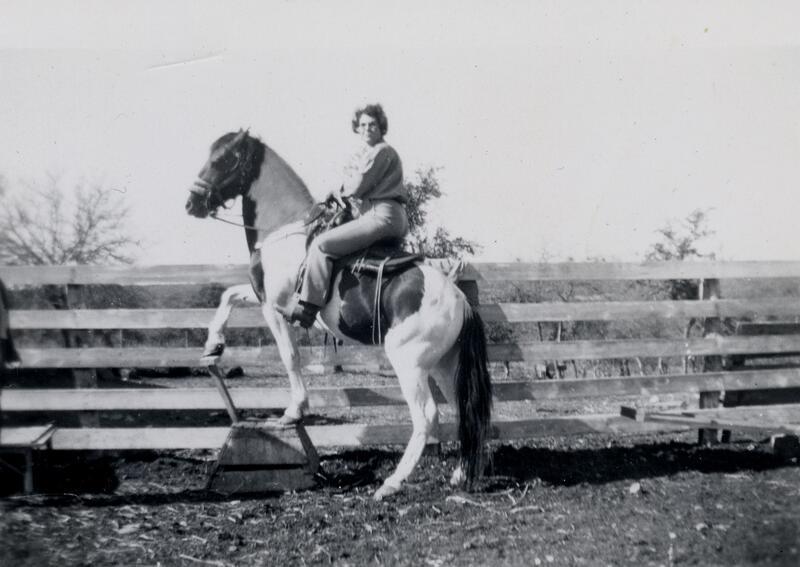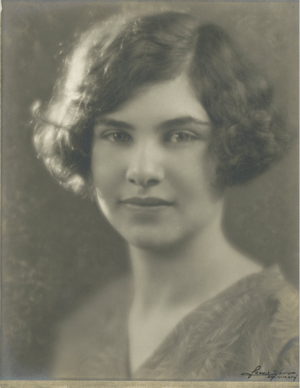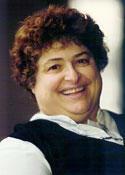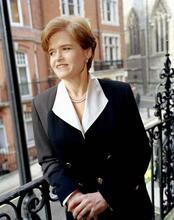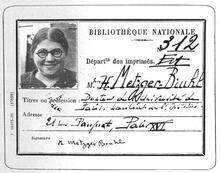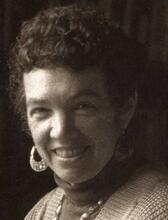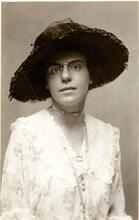Frances Rosenthal Kallison
Frances Elaine Rosenthal Kallison, the only Jewish woman in the National Cowgirl Museum and Hall of Fame, learned to ride by hopping on work horses that hauled furniture to her father’s Fort Worth store. She married a San Antonio rancher and helped manage the 1,200-acre Kallison Ranch. The ranch introduced experimental crops to Texas, entertained soldiers during World War II, and hosted politicians and law enforcement officers for annual dove hunts. Kallison cofounded an all-female precision riding team that appeared in two movies and raised money for children’s medical care. Despite opposition from Reform rabbis, she organized an exhibit on Texas Jewry for the 1968 San Antonio World’s Fair. The exhibit is continually updated and expanded by the Texas Jewish Historical Society, of which she was cofounder.
Frances Rosenthal Kallison, a horsewoman, historian, and humanitarian, was comfortable holding the reins. A Texan, Kallison was born in Fort Worth on November 29, 1908, and died in San Antonio, on December 30, 2004. Her life and her volunteer work reflected the social movements of the twentieth century. Into old age, she retained the Victorian manners of her childhood, protecting her hands with white cotton gloves in the city and leather work gloves at the ranch. During the Depression, the postwar years, and the 1950s, she was a forceful leader in the women’s sphere, serving as local and regional president of the National Council of Jewish Women and lobbying for New Deal reforms. As the wife of a prominent rancher, she joined other horsewomen to form a precision riding team that raised money for hospital equipment and was featured in two motion pictures. As the doors for women opened wider, she was appointed to curate a controversial exhibit about the Jews of Texas for HemisFair, the 1968 San Antonio World’s Fair. Kallison’s public service, her expertise in the saddle, and her published articles led to posthumous induction in 2016 into the National Cowgirl Museum and Hall of Fame. She was its first Jewish member.
Family and Education
A second-generation Texan, Frances Elaine Rosenthal taught herself to ride horseback by hopping on the draft horses that hauled furniture wagons to her father Mose Rosenthal’s store. Her father was among the founders in 1902 of Fort Worth’s Beth-El Congregation, the city’s Ashkenazi Reform synagogue. Another charter member was Sam Neumegen, whose daughter, Mary, wed Mose Rosenthal in 1903. Frances was the couple’s only child.
Kallison attended public schools until her senior year when her parents, wanting her to be more academically challenge and to have a better chance of being accepted into one of the Seven Sisters colleges, enrolled her in an Episcopal school for girls. Graduating first in her class, she delivered a valedictory address that stressed the need for women to receive higher education. In 1925, she enrolled at Vassar College. However, she found the curriculum too limited and the student body too homogeneous, so she transferred to the University of Chicago. She graduated with a degree in economics in 1929 with plans to go into banking, but the Stock Market crash quashed her dreams.
On a family trip the next year to San Antonio, she was invited to a Temple League picnic for Jewish teens. There she met and fell in love with Perry Kallison, son of a Russian-immigrant harness maker and rancher. Following the couple’s marriage March 8, 1931, at San Antonio’s posh Menger Hotel, Frances entered a new world. The Kallison family’s enterprises revolved around a farm-and-ranch store that stretched up and down a city block. The family’s 2,700-acre ranch had prize-winning bulls, show horses, and fields of experimental crops. On Labor Day, the ranch hosted dove hunts for hundreds of politicians and law enforcement officers. Frances became an active partner at the Kallison Ranch, hosting livestock experts from around the world, exercising horses, keeping breed books, naming newborn calves, and recording the unique numbers of registered bulls.
Involvement in Social Welfare
As the Great Depression gave rise to Hoovervilles on San Antonio’s outskirts, Frances was drawn to the social welfare programs of the National Council of Jewish Women. Elected president of the San Antonio NCJW section, she successfully lobbied the mayor to open a maternity ward at the city hospital. She spearheaded creation of a nursery for blind toddlers who lost their sight because of faulty incubators. She lobbied the Texas Legislature to mainstream those blind children. The school the NCJW established for these youngsters became part of the San Antonio public school system. The Council was not as successful when pressing legislators to end the poll tax or establish a minimum wage.
With the outbreak of World War II, thousands of soldiers arrived in San Antonio for basic training and flight school. The Kallisons extended Texas hospitality to busloads of soldiers who visited the ranch for barbecue suppers and a ride in the saddle.
Postwar, Kallison was on the ground floor in 1947 of another local institution—the Ladies’ Auxiliary to the Bexar County Sheriff’s Mounted Posse. The blue-ribbon riding group performed at the Livestock Exposition & Rodeo and rode in the Battle of the Flowers Parade, which honors the fallen soldiers of the Alamo. Each autumn, more than 3,000 spectators paid to attend the posse’s anniversary performances staged at the city’s Brackenridge Park. The profits underwrote medical equipment for the polio ward at the children’s hospital. The Ladies’ Posse gained celebrity status when it appeared in two movies—Two Guys from Texas (1948) and Rio Grande (1950). The riding group was also filmed for an episode of “The Cisco Kid,” a television series that Kallison’s three children (Maryann, b. 1933; Perry “Pete,” b. 1934; and Frances “Bobbi,” b. 1938) watched.
Texas Jewish History
Frances Kallison developed a passion for local Jewish history. Fascinated with the ethnic mix that had settled the American West, she began to research, publicize, and popularize the history of Texas Jewry. In 1954, she co-chaired San Antonio’s American Jewish Tercentenary Committee, which commemorated 300 years of organized Jewry in America. In 1966 she was appointed to the board of the American Jewish Historical Society.
That year, planning began for HemisFair, the San Antonio World’s Fair, which had as its theme the Confluence of Civilizations in the Americas. Appointed by Texas Governor John Connally to curate the Jewish portion of a multicultural exhibit at the fair’s Texas pavilion, Frances met with opposition from two Reform rabbis. They insisted that Judaism is not a culture but a religion, akin to Methodism or Unitarianism, and did not belong in a cultural exhibit. Undeterred, Frances argued that Judaism embodies an ancient culture with distinctive holidays, rituals, foods, literature, and ongoing traditions that impacted the development of Texas since the 1836 siege of the Alamo. Kallison supervised completion of the Jewish ethnic exhibit. The various multicultural displays proved so popular that they became a permanent part of the Institute for Texan Cultures at the University of Texas at San Antonio. The Jewish section of the exhibit has been expanded and refurbished twice by the Texas Jewish Historical Society, a group Frances Kallison co-founded in 1980.
Kallison served as president of the Texas Jewish Historical Society from 1982 to 1984. She was a founding member of the San Antonio Visiting Nurses Service; a charter member and president of the Southwest Texas Archeological Society; and a board member of the San Antonio Museum Association, the Witte Memorial Museum, the San Antonio Conservation Society, and the World Affairs Council of San Antonio. The Bexar County Commissioners bestowed upon her the honorific title “Hidalgo de San Antonio de Bejar,” meaning a noble person. To add depth to her preservation work, she enrolled in graduate school at Trinity University, a private liberal arts institution in San Antonio and in 1977 received a master’s degree in history. In her thesis, “100 Years of Jewry in San Antonio,” she wrote that the settlement of Jews in Texas parallels the history of other ethnic groups. The first Jews to arrive were adventurers seeking freedom. They broke old patterns and adopted new ones. They chose the Southwest frontier because of its social mobility and economic opportunities. Kallison also wrote about San Antonio’s Jewish community for Encyclopaedia Judaica. In 1977 she wrote a probing essay for the American Jewish Historical Quarterly about Jewish acculturation on the frontier. She also freelanced for Cattleman magazine, with stories about palomino ponies and a circuit-riding blacksmith.
An innovator who cherished tradition, Kallison wove together the disparate traditions of Texas ranching and Judaism. Her activism challenged the passive roles that women of her generation were expected to play. She left her imprint on the land, helping manage the family ranch. In 1993, more than 1,100 acres of the Kallison Ranch were incorporated into Government Canyon State Natural Area, a state park that protects the Edwards Aquifer, the underground water source for the region. Kallison’s ability to write for popular as well as academic audiences brought insights about ranch life, riding, and religion to the fore. Her scholarship predated the era of multiculturalism. She was ahead of her time, and her legacy continues.
Selected Works by Frances Kallison
“San Antonio.” Encyclopaedia Judaica. Jerusalem: Keter Publishing House, 1972, pp. 823-824.
“100 Years of Jewry in San Antonio.” Master’s thesis. Trinity University, 1977.
“Ladies' Auxiliary to the Bexar County Sheriff's Mounted Posse,” Cattleman, Vol. 38, no. 4 September 1951, pp. 124-126, 128.
“Desert Chief–Horse of Dreams.” Cattleman, Vol. 39, no. 4, September 1952, pp. 226, 228.
“Tom Bibb . . . Blacksmith to Three Generations.” Cattleman, Vol. 44, no. 4., September 1957, p. 148.
“Peruvian Horse: New Breed of Work, Pleasure and Parade Horses Introduced to South Texas.” Cattleman, Vol. 45, No. 4, September 1958, pp. 68, 70.
Kallison, Frances Rosenthal. “Was It a Duel or a Murder?: A Study in Texan Assimilation.” American Jewish Historical Quarterly 62 (March 1973): 314-320. Reprinted, Western States Jewish History 27 (1995): 254-262.
Kotz, Nick. The Harness Maker’s Dream: Nathan Kallison and the Rise of South Texas. Fort Worth: Texas Christian University Press, 2013.
Weiner, Hollace Ava. “Frances Rosenthal Kallison: Historian at Home in the Saddle.” In Texas Women and Ranching: On the Range, at the Rodeo, and in Their Communities. Liles, Deborah M., and Cecilia Gutierrez Venable, eds. College Station: Texas A&M University Press, 2019.
Weiner, Hollace Ava. “Frances Rosenthal Kallison, Cowgirl with a Jewish Conscience.” Western States Jewish History, Vol XLIII, Fall 2015: 3-25.

